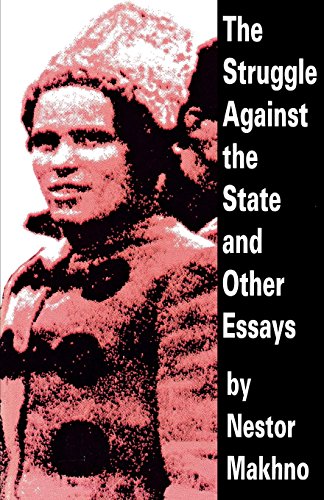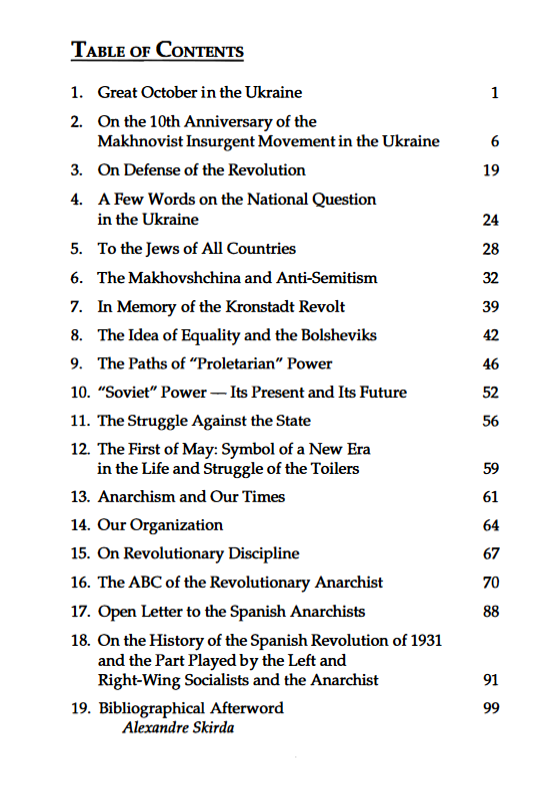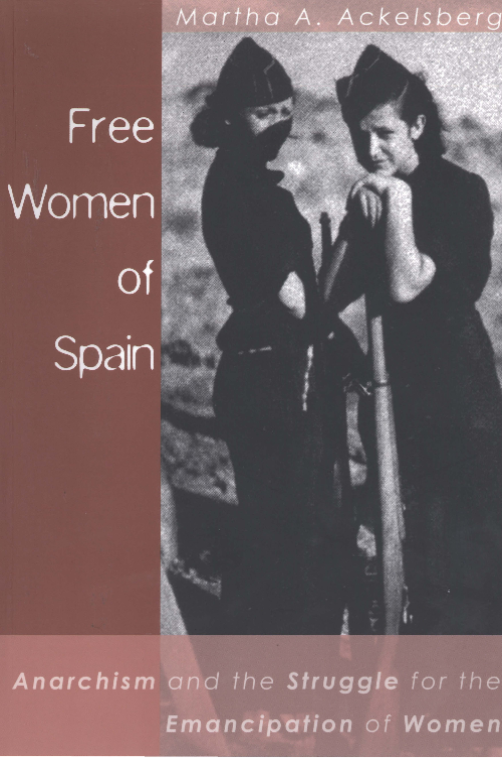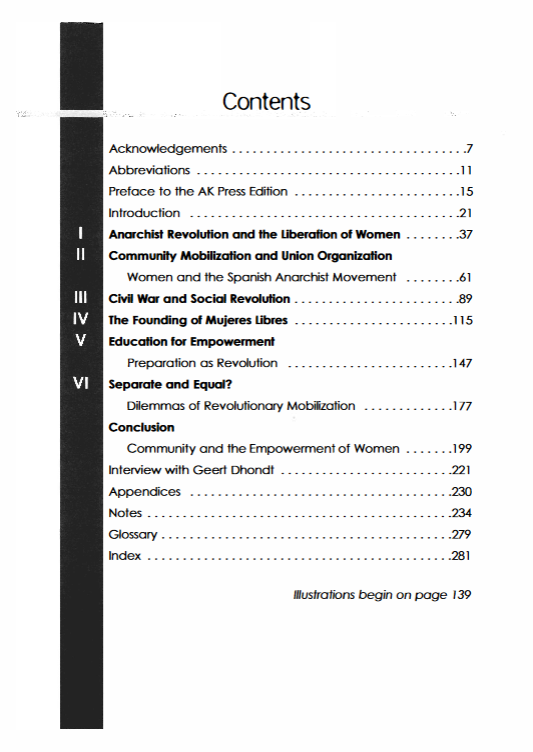Workers’ Self-Management in the Spanish Revolution, 1936–1939
Author(s)
Sam Dolgoff (editor)
Murray Bookchin (introduction)
Contents
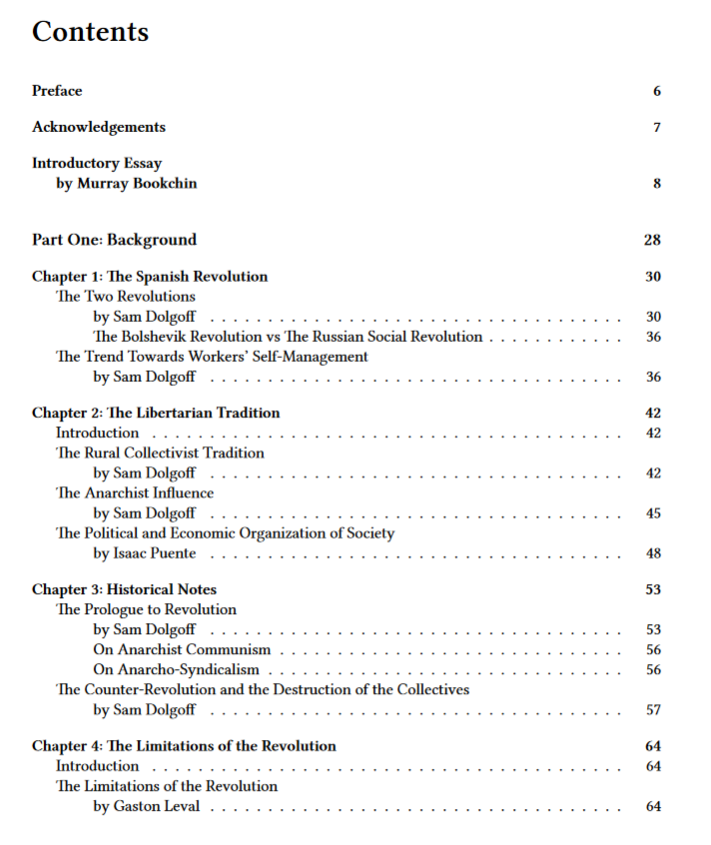
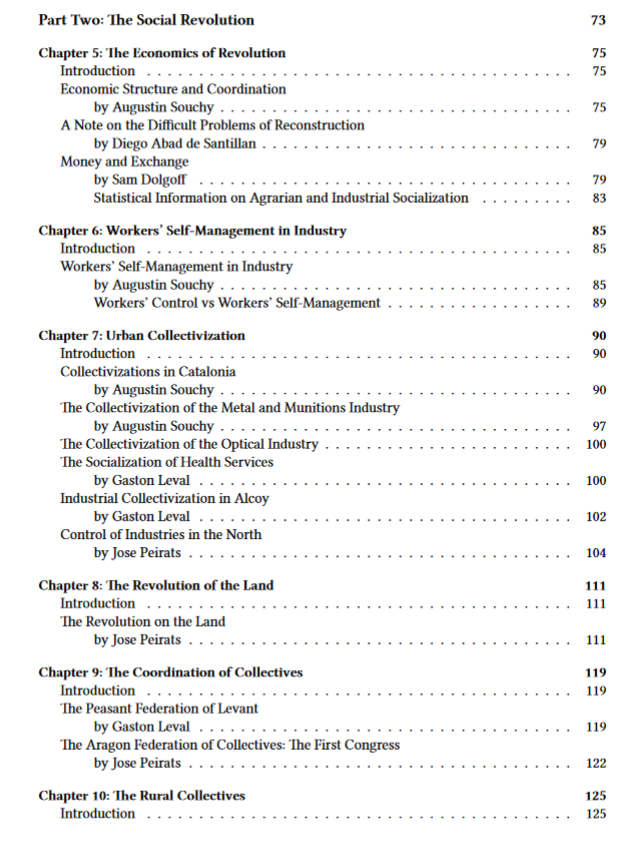
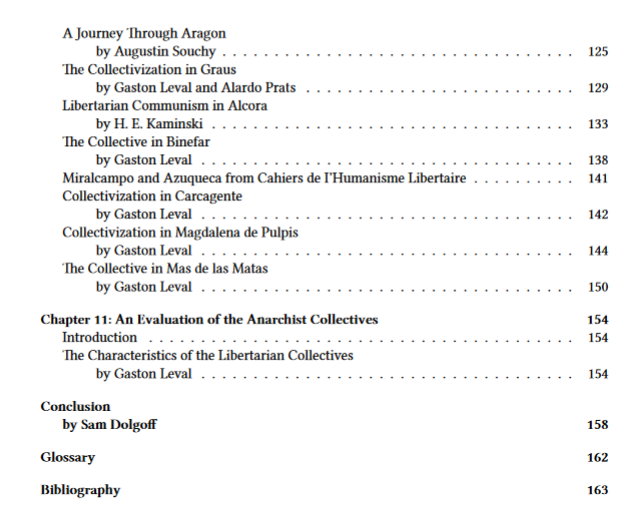
“What are these basic principles of workers’ self-management?
Let us go through them briefly.
By definition, “self-management” is self-rule. It excludes rule over others–domination of man by man. It excludes not only the permanent, legally sanctioned authority of the state through its coercive institutions but demands the very extirpation of the principle of the state from within the unofficial associations (miniature states) of the people : from within the unions, from the places of work, and from within the myriad groupings and relations which make up society.
By definition, “self-management” is the idea that workers (all workers, including technicians, engineers, scientists, planners, coordinators–all) engaged in providing goods and services can themselves efficiently administer and coordinate the economic life of society. This belief must of necessity be based upon three inseparable principles :
1) faith in the constructive and creative capacity not of an elite class of “superior” individuals but of the masses–the much maligned “average man”;
2) autonomy (self-rule);
3) decentralization and coordination through the free agreement of federalism.
By definition, “self-management” means that workers are equal partners in a vast network of interlocking cooperative associations embracing the whole range of production and distribution of goods and the rendering of services. It must of necessity be based upon the fundamental principle of free communism, that is, the equal access to and sharing of, goods and services, according to needs.
The contemporary significance of the Spanish Revolution lies not so much in the specific measures improvised by the urban socialized industries and the agrarian collectives (most of them outdated by the cybernetic-technological revolution) but in the application of the fundamental constructive principles of anarchism or free socialism to the immediate practical problems of the Spanish social revolution.
These principles are beginning to be understood more and more today. It is hoped that this collection will contribute to that understanding.”
Sam Dolgoff
Leave a comment below with a valid email adress (it will not be published) to request this book.
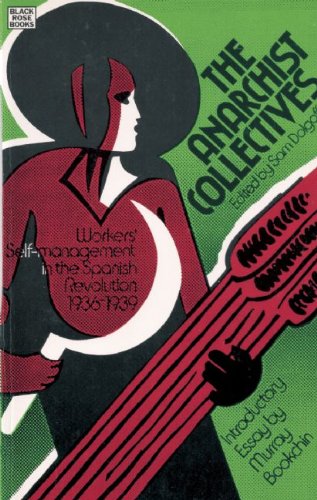
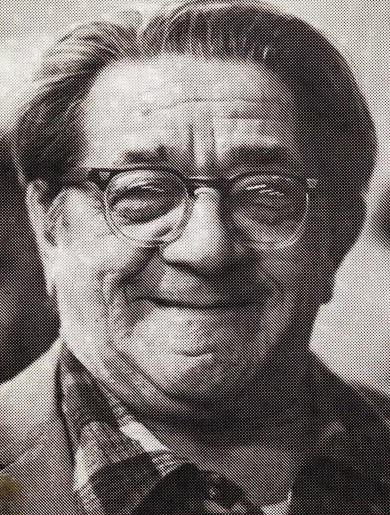
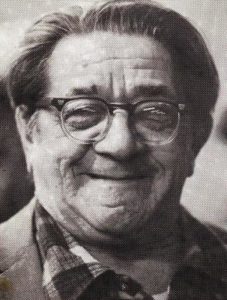 Dolgoff, Sam
Dolgoff, Sam 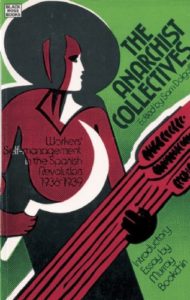 The Anarchist Collectives (1974)
The Anarchist Collectives (1974) 